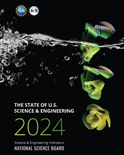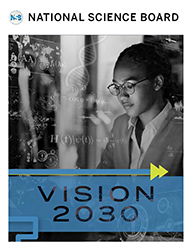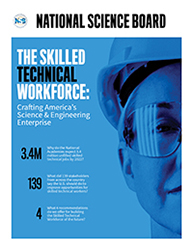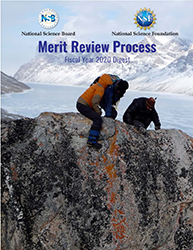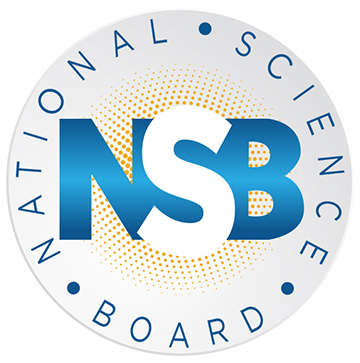
Computer Scientist and Disability Advocate Richard Ladner Receives 2020 Public Service Award
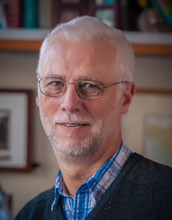
Richard Ladner (Credit and Larger Version)
August 11, 2020
Today the National Science Board (NSB) announced that renowned computer scientist Richard Ladner is the 2020 recipient of its Public Service Award for an individual.
NSB grants its Public Service Award to individuals and groups that have contributed substantially to increasing public understanding of science and engineering. Dr. Ladner has demonstrated exemplary science communication and diversity advocacy throughout his career and has been called the “conscience of computing.”
His research focuses on developing tools to make technology more accessible to those with disabilities. Ladner’s projects range from making wireless cell phone communication through sign language a reality to improving access to graphical images for blind students.
“I am honored to receive this recognition from the National Science Board,” said Ladner, “and heartened that the scientific community is rising to the important challenge of supporting students with disabilities. This is an important part of diversity and inclusion in science.”
Over the past 25 years, Dr. Ladner has participated in or organized numerous computer science workshops for high school students with disabilities. Currently, he and his colleagues are developing accessible curricula and training teachers of blind and visually impaired students, teachers of deaf and hard of hearing students, and teachers of learning-disabled students to help more students with disabilities participate in AP Computer Science Principles courses. As a faculty member in the University of Washington’s Paul G. Allen School of Computer Science & Engineering, he has mentored 136 students, including 30 PhD students.
From his foundational experiences as a graduate student teaching hands-on mathematics in his community to co-founding AccessComputing, Dr. Ladner has spent his career educating and changing the conversation on diversity.
“When we think about diversity, we must include disability as part of that. The conversation about diversity should always include disability,” said Ladner.
AccessComputing brings together 62 institutions and organizations with a goal of increasing the participation and the success of students with disabilities. This NSF-funded project has supported more than 950 students with disabilities and promotes inclusivity and accessibility beyond compliance at institutions across its collaborative institutions.
“We cannot exclude anyone when it comes to the important pursuit of scientific advancement,” said Victor McCrary, Vice Chair of the National Science Board and Chair of the 2020 NSB Honorary Awards Subcommittee. “Richard Ladner’s work has significantly enlarged the circle of perspectives at the bench, and by welcoming and empowering those with disabilities to fully contribute he has greatly enhanced and advanced our nation’s global leadership in science, engineering, and technology.”
The NSB is not the only entity to recognize Dr. Ladner. He was awarded the 2019 Harrold and Notkin Award, given by the National Center for Women and Information Technology to distinguished researchers and mentors who recruit, encourage, and promote women and minorities in computing fields. The Center on Disabilities at California State University, Northridge gave him the Strache Leadership Award in 2018 and Ladner was granted the 2016 SIGACCESS Award for Outstanding Contributions to Computing and Accessibility. In 2004 he was given the Presidential Award for Excellence in Science, Mathematics and Engineering Mentoring (PAESMEM)—a program supported and administered by the National Science Foundation (NSF), which honors individuals and institutions that have enhanced the participation of underrepresented groups—such as women, minorities and people with disabilities—in science, mathematics and engineering education.
Later this summer, the NSB will announce additional 2020 Honorary awardees.
Media Contacts
Alison Gillespie, National Science Board, 703-292-2557, algilles@nsf.gov
Kristin Osborne, University of Washington, 206.616.7479, kristin@cs.washington.edu
About the National Science Board
The NSB and NSF’s Director jointly head the agency. The Board identifies issues critical to NSF's future and establishes its policies. The NSB also provides the President and Congress with Science and Engineering Indicators, a biennial report on U.S. progress in science and technology. Members are appointed by the President for six-year terms and are selected for their eminence in research, education and records of distinguished service.
Useful NSB Web Sites:
Home Page: http://www.nsf.gov/nsb
Media Contact: http://www.nsf.gov/staff/staff_bio.jsp?lan=nlymn&org=NSF
News: http://www.nsf.gov/nsb/news
Meetings: http://www.nsf.gov/nsb/meetings
Publications: http://www.nsf.gov/nsb/publications
Facebook: https://www.facebook.com/NationalScienceBoard
Twitter: Twitter: https://twitter.com/intent/user?screen_name=NSF_NSB
YouTube: https://www.youtube.com/channel/UCkrHRzuGSrPp2haQs0T_Pww
To view PDF documents, please download Adobe Acrobat Reader.
